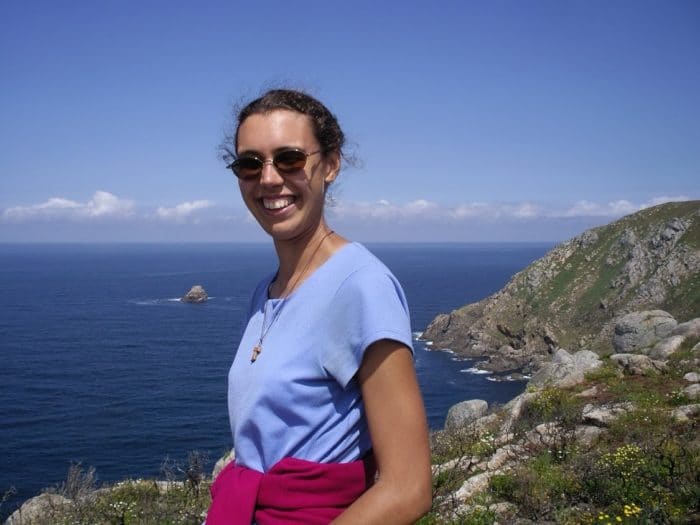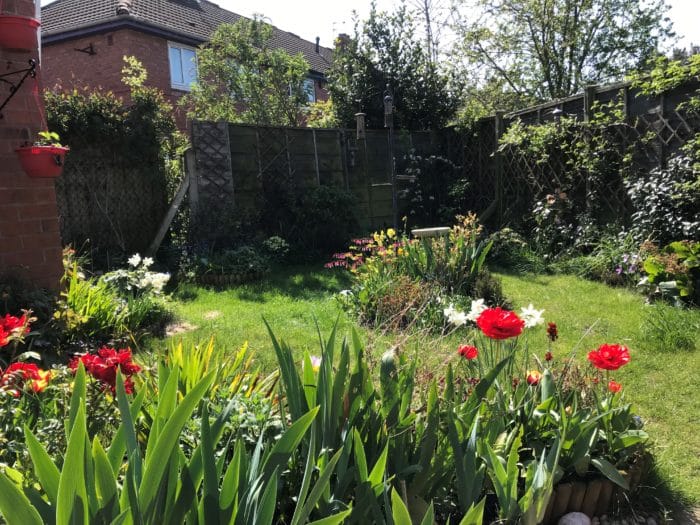Meet Naomi: a bright, adventurous and talented woman who studied for her PhD at Cambridge University. In 2006, Naomi suffered a stroke which subsequently left her living with myalgic encephalomyelitis (ME) – also referred to as chronic fatigue syndrome (CFS).
Here, Naomi tells us her story in her own words and explains how, with the support of her husband, friends and her Helping Hands carers, Naomi does not let her ME define her.

My ME Diagnosis
My stroke happened completely out of the blue, and although I generally made a good recovery from it, I was left with ME which is now more disabling than my stroke ever was. I was extremely active, happy, fit and healthy, and I loved being outdoors. At Cambridge, I used to row, run, sing in choirs and play in orchestras. I took part and helped run various student organisations, and I also did quite a lot of voluntary work and enjoyed teaching undergraduates.
I was formally diagnosed with ME in 2008. Initially I was classed as ‘moderate/severe’ – meaning that I was largely wheelchair bound – but I managed to continue with my studying and worked part-time in a fairly demanding job which I loved, despite my ME becoming progressively worse. In 2016, my condition deteriorated after contracting a severe infection, and I’ve since been largely bedbound and dependent on carers for support.
I always loved spending my time working on exciting projects. I once worked on a robot that was designed to treat stroke patients with the bioengineering group at Massachusetts Institute of Technology (MIT), and I helped set up an orthotics unit at a hospital in Bangladesh.
My life with ME
I always loved the great outdoors and had many hobbies and interests, but since my diagnosis I’ve had to find new ways to participate in them. Having visits from my friends remains to be one of my greatest pleasures, even though I sometimes struggle to follow conversations or even recognise them – but they are very forgiving! We have to keep visits brief with lots of rest breaks, and I usually pay for it with more symptoms for a few days afterwards… but it’s well worth it.
Having ME has really made me recognise how important my family and friends are – something I perhaps took for granted before. I dread to imagine how much harder life would be now if it weren’t for my fabulous husband and my wonderful friends; their love and friendship is even more invaluable than the practical support they give me.
My friends often send me their holiday photos which allows me to virtually travel the world with them, and a charity very kindly built us a conservatory so that I can feel as though I am outside and see the birds and flowers from my bed.

Helping Hands and Myalgic Encephalomyelitis
In 2018, I decided that I needed more support than my current care provider could give me – so I tried Helping Hands. And I’ve never looked back. On my ‘good’ days, my carers take me out into the garden for a few minutes. We grow seedlings on the windowsill next to my bed, and then they help me plant them in the garden. I’m so proud of how nice the garden looks and how many birds it attracts – I couldn’t have done it without their support.
The support of Helping Hands has been amazing and, most importantly, they reduce the burden of care on my husband, so that he can continue to work and so that we can spend quality time together. It allows us to feel more like ‘husband and wife’ instead of ‘patient and carer’.
Advice to others living with ME
ME is very much an umbrella term, so I don’t think any one piece of advice will apply universally. ME covers a lot of different conditions, but with the common feature that modern medicine doesn’t yet understand them. Different people with the same diagnosis can therefore be experiencing very different challenges. But for me, the most helpful things I’ve learnt are:
- Take each day as it comes. Look for hope and joy in what is around meand rejoice in the little things like birdsong, the smell of a rose or a lovely sunset. Leave tomorrow’s worries for tomorrow, instead of allowing myself to be consumed by the frustration, pain and fear that can otherwise be so overwhelming with this condition.
- Try not to worry about other people’s perceptions or expectations of us. There are so many negative, prejudiced and discriminatory views of ME and other ‘invisible’ disabilities in the media and amongst the general public. I don’t think people are intentionally hurtful when they share their misinformed views with us, or when they seem to blame us for our condition – they simply don’t understand the reality of what we’re facing. Growing a thick skin is easier said than done, but I think it’s really important to find some positive ways of dealing with such encounters so that they don’t negatively affect us and our recovery. Personally, I find laughter most therapeutic in this context!
Help us support ME Research UK
On July 5 our content writer, Lauren, will be climbing Ben Nevis, Scafell Pike and Snowdon in 24 hours in aid of ME Research.
ME affects approximately 250,000 people living in the UK and 17 million people worldwide – and is still without a cure.
To support Lauren’s challenge and make a contribution to ME Research so that we can help to support those living with ME, please visit the “Peaky Climbers” JustGiving page:
